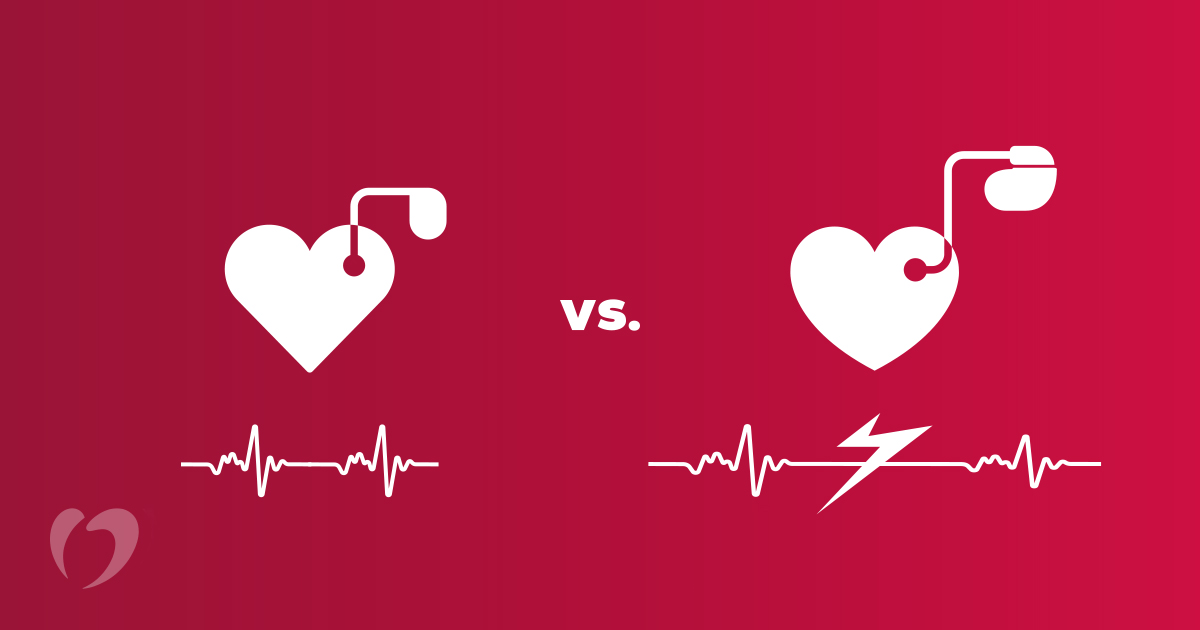Pacemaker or Defibrillator: What’s the Difference?

Pacemakers and defibrillators are both implantable devices that help treat irregular heart rhythms and improve quality of life for patients. But what’s the difference between the two devices?
A pacemaker keeps your heart beating steadily
If you get fatigued or short of breath easily when doing strenuous things, you may have a slow or irregular heartbeat. Usually when you do any sort of physical exertion, your body will speed up your heart to make sure it keeps up with your activities. If your heart’s not up to the task, though, it won’t. That’s where the pacemaker comes in.
A pacemaker is an electronic device that’s placed internally in your body, usually in the shoulder with wires leading to the heart. With advances in technology, though, some pacemakers are small enough to be implanted directly on the heart muscle itself.
The pacemaker’s job is to keep a heart with a slow or irregular beat running at the proper speed, and it’s a huge improvement in quality of life for those who have heart issues. And irregular heartbeats aren’t just an issue for the elderly—they affect young people too. Whether your heart beats too fast, too slow, or inconsistently, a pacemaker can help regulate your heartbeat.
Typically the only issue that people with pacemakers have to deal with is avoiding arc welding or other activities that can cause a strong electromagnetic field, and those are rare. For the most part, people with pacemakers can lead a normal, active life, although they do need to have their pacemaker checked regularly to ensure it’s pacing properly. Oklahoma Heart Hospital offers pacemaker clinics across the state to make regular checkups easy and convenient.
A defibrillator also shocks your heart if needed
Implantable cardioverter defibrillators, or ICDs, are a similar kind of device in that they monitors your heart rhythm. However, there’s one key difference: a defibrillator can also shock your heart if it detects a dangerous rhythm.
When the heart begins to pump too fast, it can start contracting before the ventricles are full of blood, which can lead to cardiac arrest. An ICD is implanted similarly to a pacemaker and will detect irregular rhythms to give a life-saving shock.
Almost all ICDs these days also come with pacemaker capabilities as well. The pacemaker is the steady hand guiding your heart through each day, while the defibrillator is the guardian angel standing ready to keep you safe if your heartbeat becomes dangerously irregular.
Whether you need a pacemaker, an ICD, or both, Oklahoma Heart Hospital is here to help. Our Heart Rhythm Institute has multiple clinics throughout the state that that treat a wide range of heart rhythm issues. Contact us today to schedule an appointment with one of our specialists.
